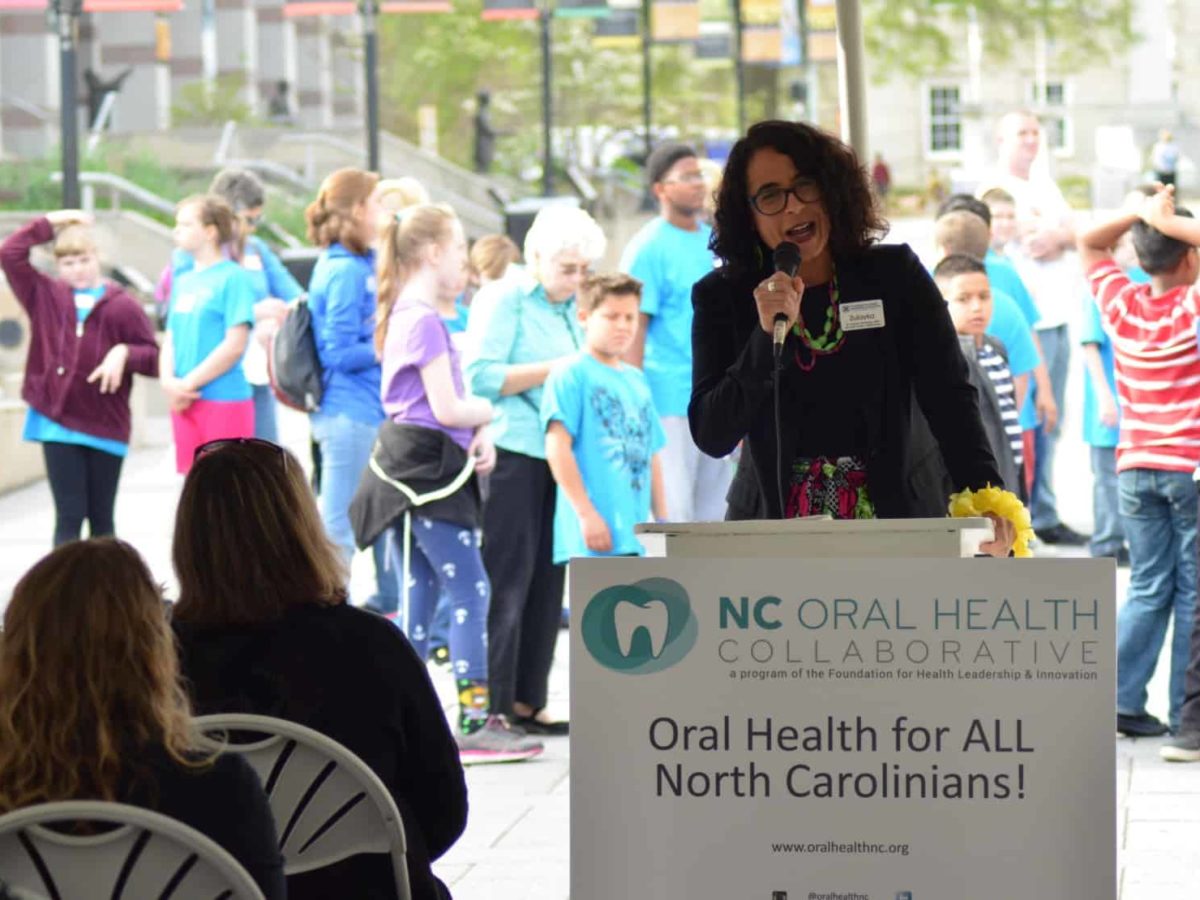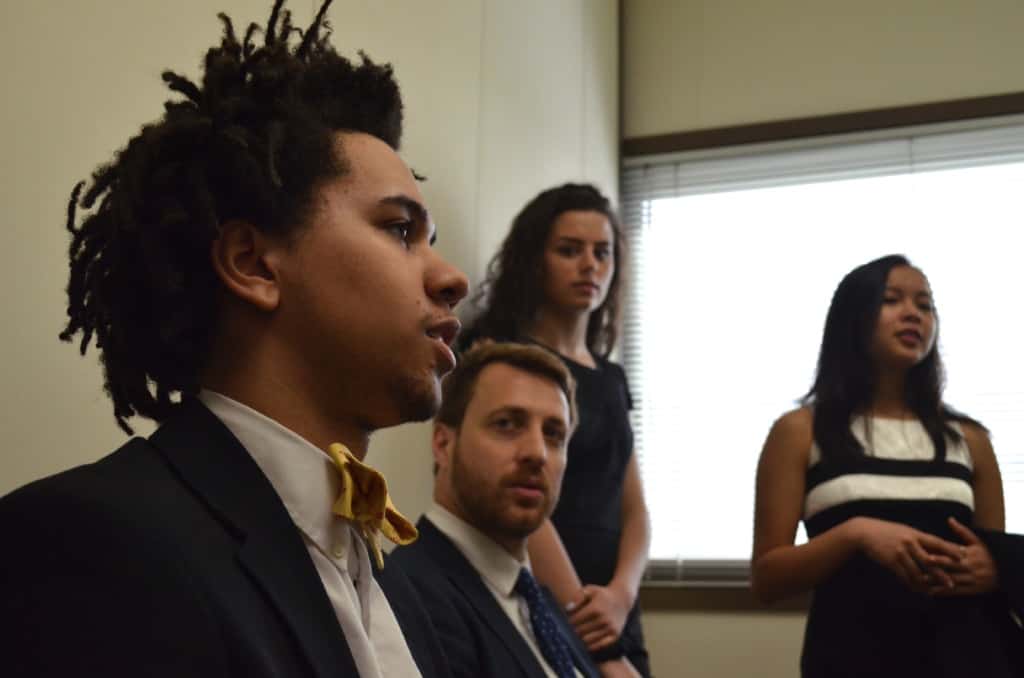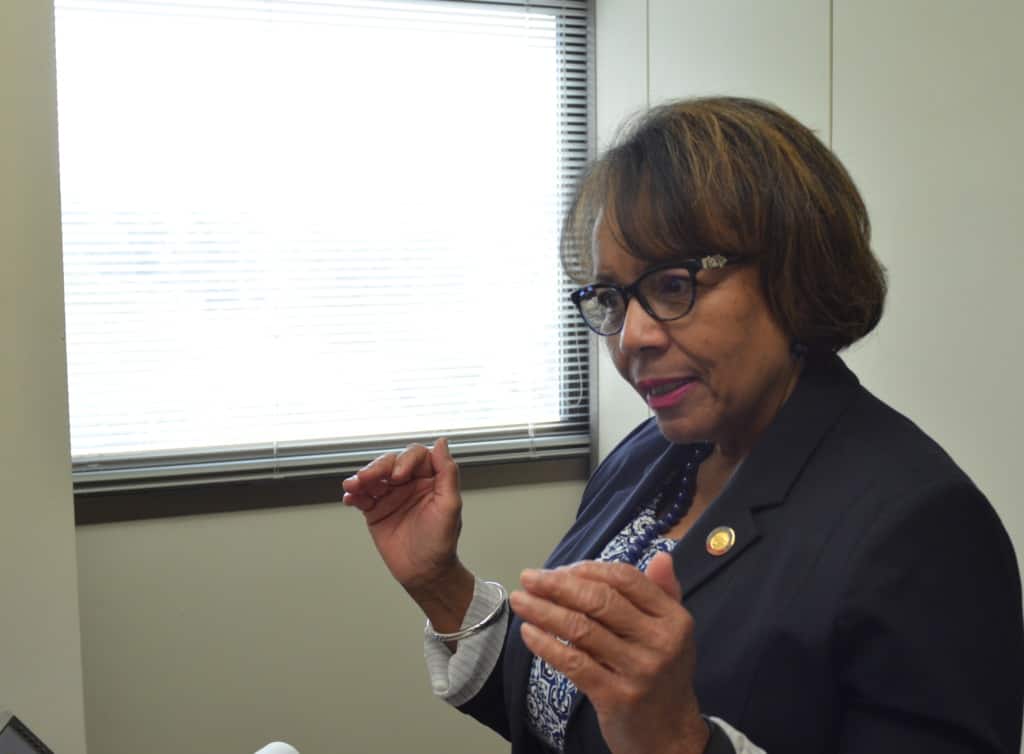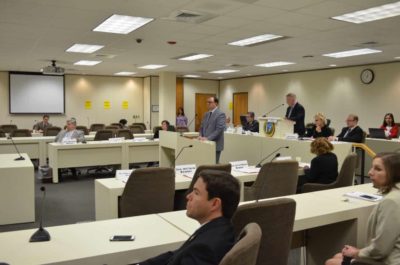

Zulayka Santiago knows what it feels like not to have access to oral health care. When she was a child, a few years after she and mother moved to Louisiana from Puerto Rico, her mouth started to hurt.
While her family managed to get coverage for some medical costs, dental care was not included. Her mother worked a series of barely minimum wage jobs, and paying for a dentist was nearly impossible.
“In the winter of 1984, the pain in my mouth had gotten so bad that I could barely stop crying,” Santiago said. Fortunately, her mother was eventually able to find a dentist across town that would help, and Santiago’s pain went away.
Santiago, director of the NC Oral Health Collaborative, told the story at the Oral Health Day at the legislature which brought together oral health advocates to educate legislators about the issue in North Carolina. Santiago’s personal narrative opened the event.
“That’s the point that brings us here to this place and time. To this moment,” she said. “I am here to highlight that for too many North Carolinians, finding a dentist who will see them in a timely manner, that they can afford and can communicate with, is difficult if not impossible.”
The event included many groups, including the National Children’s Health Foundation, Youth Empowered Solutions (YES), and North Carolina MomsRising. Representatives of the groups and other advocates gathered on the Bicentennial Capitol Mall in front of the North Carolina General Assembly for a series of speakers before heading into the legislature to meet with lawmakers.
They shared statistics like 13 percent of kindergartners in the state have untreated tooth decay. Fifty five percent of American Indian and 52 percent of Hispanic children get tooth decay. Only 30 percent of white children do. And children with poor oral health are three times as likely to miss school because of dental pain.
Beth Messersmith, campaign director for NC MomsRising, was one of the morning’s speakers. She said that tooth decay is the most common disease in early childhood. In fact, it is two to three times as common as asthma or childhood obesity, she said. Despite that, some children still fall through the cracks.
“Dental care remains the single greatest unmet need in our state,” she said, adding later “The most important thing that we all know is that this is totally preventable. There is no excuse.”
It is an issue not just of concern to mothers, but also to high schoolers like 17-year-old Sanderson High School student Jacquelyn Hedrick. She joined two other high schools students — 17-year-old Enloe High School student Leighton Harrell and 17-year-old Raleigh Charter High School student Caroline Le — in meeting with legislators where the students shared facts about oral health.
They are all staff members at YES. Jacquelyn joined about two years ago. Before that, she did not know much about the state of oral health in the state.
“As a relatively affluent young person living in the ever-so-glamorous suburbs of North Raleigh, I kind of coasted through the majority of my life blissfully unaware that so many people around me, so many people within my community and my state, were suffering because of a lack of access to oral health care,” she said in a speech Wednesday morning.
When she joined YES, Jacquelyn learned about the oral health inequities in North Carolina. For instance, she became aware that there are three counties in the state with no dentists whatsoever: Hyde, Camden and Tyrell. Meanwhile, in Wake County there are more than 500 dentists, she said.
“I realized that as someone who has always enjoyed the privilege that is ease of access to care, I had an obligation to bring the voices of young people who don’t experience that privilege to the table with decision makers,” she said.
Jacquelyn, Leighton and Caroline went with YES Team Lead Parrish Ravelli to the offices of lawmakers like Rep. MaryAnn Black, D-Durham, and Sen. John Alexander, R-Wake.


Leighton explained to Black why they were there and what they wanted to impart.
“It’s an issue that not a lot of people know about,” he told Black. “And it’s really a much bigger problem than is kind of talked about.”
Hedrick explained some of the limitations that North Carolina places on oral health practitioners, affecting their ability to care for patients in need. For example, she told Black that North Carolina is below the national average for dentists but above the national average for dental hygienists. Those dental hygienists could theoretically fill in the gaps, but a clause in the Dental Practice Act hampers them.
The clause essentially provides that before dental hygienists can perform certain practices, patients have to receive an examination from a dentist, Hedrick said.


“Which means for everything they could provide, there is an extra step added in that hinges on having a dentist present,” Hedrick told Black. “And we know that there aren’t always dentists present.”
At Sen. John Alexander’s office, he was not available to talk with the students, so they met with Legislative Assistant Perry Wester instead.


“We just want it to be something that’s thought about,” Hedrick told Wester, before informing her about the inequity between the three counties that have no dentists and bigger districts like Wake County. “This kind of leads to lack of access across the board.”
While oral health is not necessarily on the forefront of many people’s minds, it is important because lack of oral care can affect lives in substantial ways, Caroline told the crowd at the Oral Health Day event.
“Oral health determines our ability to eat and speak,” she said. “…a day at school would not be possible if we are constantly thinking about what is happening in our mouth and the pain.”
The event did not target any specific legislation, nor did the advocates focus on swaying any particular political party in the General Assembly. They just wanted to get the facts out. Santiago says oral health is not a partisan issue.
“Pain does not recognize political affiliation.”


